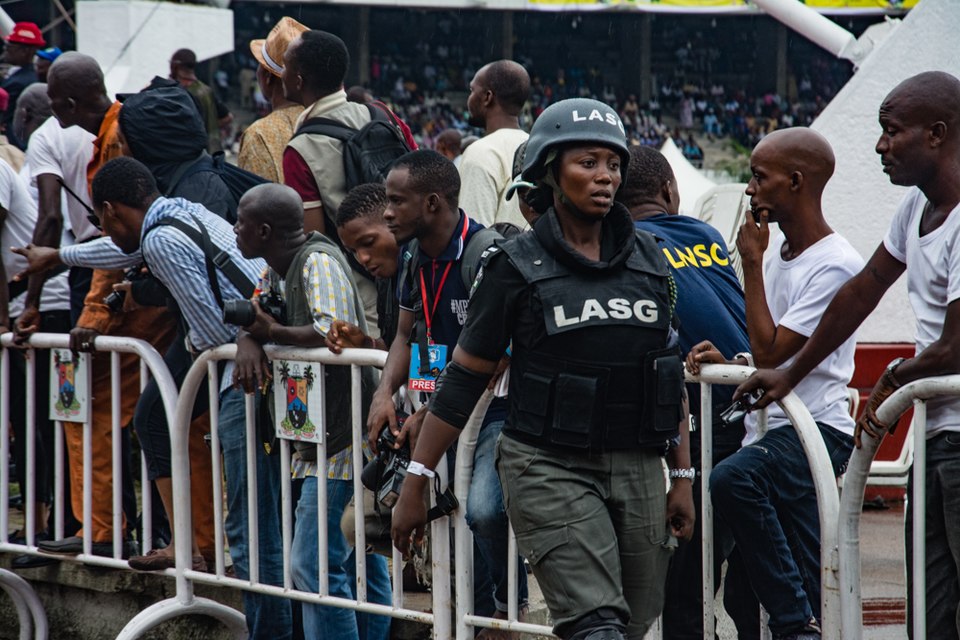Is it an impetus toward social justice, or does it imperil social cohesion? The roots, actions, and implications of this contested movement.
In the recent years’ Operation Dudula has been a controversial grassroots movement in South Africa eliciting national attention calling for the removal of undocumented migrants from neighborhoods, informal settlements, and some employment sectors. What was initially a local campaign in Johannesburg has since mutated into a broader phenomenon drawing both supporters and critics into a complex conversation about law, safety, jobs, and identity.
The movement raises urgent questions: At what point does the act of remedying an ill in the midst of community initiative tip the scales either into civic engagement or against the actors as purveyors of unlawfulness? And, for South Africa, how to maintain order with inclusiveness, perhaps more so in a society where the specter of economic and social divisions looms large?
What is Operation Dudula? Operation Dudula started around 2021. It was first introduced as a community campaign to address illegal immigration, drug trafficking, and informal economic activity. Supporters said the initiative filled a gap left by limited policing in some areas.
Its early activities included:
• Marches in urban neighborhoods
• Visits to informal markets and businesses
• Documentation demands from workers and tenants
• Prioritizes South Africans for job opportunities
If the campaign was seen by some as a response to real community frustrations, by others it was seen as concern over lynch mob tactics and profiling, particularly when incidents involved harassment of foreign nationals.
Social and economic drivers of the movement
Most of the complaints by the Operation Dudula supporters’ have real basis and emanate from common and broad problems; however, many of
the grievances expressed by Operation Dudula supporters stem from real and widespread challenges,
Unemployment
In the wake of stark raving unemployment that grips over 30% of the South African labor force, animosities have heightened mostly amid the young over the cheap labor market’s competitiveness.
Strained Public Services
Some of the links that communities have made are between the pressure of healthcare, education, and housing, and they believe it is caused by the increasing migration, particularly to the urban centers of Johannesburg, Tshwane, and Durban.
Crime and Disorder Perceptions
In high crime areas with overwhelmed police, at times the need is felt by residents to take care of their own security— this leads to tensions and misplaced blame
Violence and escalation at a national scale
Despite having begun as a grassroots campaign, several mobilizations of Operation Dudula have led to clashes, evictions, and even damage to property, particularly in neighborhoods with a high migrant presence
Isolated incidents have included forced entry into businesses or informal homes
These incidents elicited responses from government, civil society, and law enforcement. It has been reiterated that all community action must be within the precincts of the law and that public order is a national, not private, responsibility.
“We understand people’s frustrations, but public safety cannot be left to uncontrolled forces,” said the Gauteng provincial spokesperson during a briefing in 2023.
The role of the media and public perception
The media has had a high profile in shaping perceptions of Operation Dudula. On the one hand, some coverage has served to reinforce legitimate concerns about unemployment and gaps in policing. On the other, some coverage has brought to the fore concerns about xenophobia and incitement — especially when the targeting is of foreign businesses.
Public opinion remains deeply divided, with surveys showing both support and concern about the impact of community repression.
Government Response and Policy Stance
National and provincial priorities:
• Immigration laws under the formal institutions, such as the Ministry of Home Affairs and SAPS
• Unlawful acts under the banner of social activism
• Discussion between the residents and migrants to reduce the level of disinformation and therefore the level of violence
Simultaneously, some of the leaders acKnowledge the Need for a transparent and efficient migration policy going forward to regain public confidence and bring down tensions at the local levels
Community responses and civil society initiatives
The emergence of Operation Dudula has elicited vibrant responses from human rights organizations, religious bodies, and local NGOs in calling upon the public to desist from blaming, but instead concentrate on building social cohesion.
Notable among these initiatives include:
• Workshops for creating a peaceful dialogue between migrant and South African communities
• Legal aid for victims of displacement or harassment
• Composite business development programs as a means to foster collaboration among different communities
“We do not need walls between people. We need bridges,” said Noma Dlamini, a community organizer in Alexandra. “Our future depends on unity, not fear.”
Toward lasting solutions
To move forward constructively, South Africa must address the root causes that drive movements like Operation Dudula. Let there be no allowance for fear or frustration to undermine constitutional rights.
Key actions:
✅ Strengthening law enforcement
An immigration management that is coherent with the law and respects the dignity of all is essential.
✅ Promoting inclusive economies
This includes support for job creation, small business development, and fair employment practices. It will reduce the sense of zero-sum competition in vulnerable sectors.
Building social cohesion
Key actions are social dialogues, educational campaigns, and media partnerships that building understanding and break down division.
Operation Dudula reflects deeper economic, political, and social tensions in South Africa. While it raises important issues in some communities, it risks crossing dangerous lines if not carefully addressed through institutional, lawful, and inclusive channels.
At its heart, the debate is not just about migration. It is about what kind of society South Africans want to build – one in which community strength is defined by cooperation, not confrontation; by honesty, not fear.
With the right leadership and dialogue, the country can move towards solutions that protect both public order and human dignity upholding the values of a just and democratic society.
